- Home
- Mary Hooper
By Royal Command Page 9
By Royal Command Read online
Page 9
‘Not give, Miss,’ I said, mortified that she’d presume such a thing. ‘If I could just borrow a gown from you ‘twould be more than enough.’
‘No, indeed you cannot.’
‘Oh!’ I said, saddened and worried that I had offended her by asking for too much.
‘But I’ll give you a gown – for heaven knows I have enough, and nowhere to wear them. Moreover, I insist that you have two gowns, so that if you get invited somewhere else then you’ll have something different to wear, which is only seemly.’
When I tried to protest, she would have none of it, and simply said, ‘In return you must come to see me and tell me about the occasion, of how you looked and how everyone else looked.’
‘If you wish,’ I said, ‘of course I will.’
‘For you cannot know how much I long to go into society!’
‘And your father won’t allow you?’
She shook her head. ‘He believes that the world is full of sin and treachery and at any time I might fall into the devil’s hands.’
I thought about this. ‘You nearly did fall . . .’
‘But you rescued me!’
She went into a small room, which I supposed was her dressing room, for it had a pitcher and bowl for washing, a padded night stool and a long shelf containing hats and hoods, various hair decorations, false topknots of curls and so on. Hanging all around the picture rail of this room were many bodices and skirts in a variety of colours, mostly soft shades which would be becoming to a young miss: white, misty blues and greys, palest of pinks, primrose and hazy greens.
‘So many lovely things!’ I gasped.
She went to a nest of drawers and opened one which contained belts, coloured feathers, fans and gauzy scarves. ‘You see I am not a Puritan in spite of having a Puritan name, and despite my father’s admonishments and daily lectures. I have all this because my family is very rich, and my mother loves to spend money on me.’ She stood back for some moments looking at the garments around the room, her head on one side in deep consideration, then sprang forward and pulled out two gowns. ‘I think . . . this pale blue wool, and this green velvet will both suit your colouring.’
On touching the soft wool and feeling the richness of the velvet, I gasped. ‘I really could not possibly . . .’
‘Nonsense. They are not worn half enough and will be out of fashion before anyone has a chance to fall in love while wearing them – and that, after all, is the reason for having pretty dresses, is it not?’
I could not answer this, being so moved at her kindness to me, and did little more than kiss her hand and promise to return when I could and tell her how I’d fared in them.
I called briefly at the marketplace in order to see Isabelle (who had just sold the last of that day’s kissing boughs) and arrived back at the magician’s house in time to help Mistress Midge with that day’s dinner, for which the main dish was chicken pie with apple puffs and clotted cream to follow.
‘I have some very interesting news,’ she said. ‘When the brewer called, I asked if he’d heard anything new about Her Grace’s lover – for he delivers beer to the palace, you know.’
I nodded keenly.
‘And he said that the Frenchman had sent the queen a love letter with an emerald pushed into the wax seal!’
‘Never!’
‘The emerald, they say, was as long as your little finger, and as wide!’
‘So the royal match is still on?’ I surmised.
‘Seems it is. Though the brewer told me ‘tis all a ploy by Her Grace and her ministers to try and stop France joining with Spain against us, and she doesn’t really mean to marry him at all.’ She lowered her voice. ‘Apparently there are twenty-one years between them! What do you think of that?’
At first I was horrified, but then quickly came not to care about it, for I knew that royalty are not like ordinary people. Besides, whatever Her Grace chose to do was beyond reproach in my eyes, and if she wanted and loved a younger man, then that was her affair.
We gossiped about this for some time, for Mistress Midge was in a merry mood, having completed the marchpane cake and also gilded the top of it with squares of gold leaf, so that it looked very fine and festive.
‘I’ve been thinking long about the cooking of the venison,’ she said, ‘and have obtained an excellent recipe from my sister for a gallendine sauce to garnish it. ‘Tis a royal method she has told me, made with claret wine, cinnamon, ginger, cloves and sugar.’ She winked at me. ‘It will show the Walsinghams that the Dee family are served by a very skilled and most knowledgeable cook!’
As she was so gay, I took the opportunity to ask if I might, once Merryl and Beth were in bed, go a-mumming around the houses with Isabelle and her sisters (for I did not, of course, intend to tell her I was going to the palace).
‘You may,’ she said. ‘I did the same in my youth and ‘tis an excellent way to get a few coins in your pocket.’ And, rolling out a yard of pastry, she sang,
‘A jug of Christmas ale, Sir, will make our voices ring,
Money in our pockets is a very good thing!’
I laughed and we sang this again, together, and a moment later a smiling Mr Sylvester (for he had heard us for sure) put his head around the door and said that the fire was very low in the school room and could it be made up.
I went in with a pail of coal and, feeling confident of the answer, paused to ask if Merryl and Beth were doing well at their studies.
‘Indeed, they are very diligent,’ said Mr Sylvester. He wore a schoolmaster’s gown as usual, but underneath I was surprised to see a heavily decorated jerkin and embroidered shirt – more the clothes of a court dandy.
Beth stopped writing and smiled up at me, pleased to be praised, and I looked to see what she was copying from her horn book.
‘Do you read?’ Mr Sylvester asked in a startled voice.
I was torn here, on the one hand wanting to continue the impression of being a simple housemaid, on the other not wishing to appear ignorant in front of such a clever and personable man.
‘A . . . a little,’ I said. ‘But that is merely through the girls’ attentions to me, for before you came they had taught me to read and write my name, and we would often play word games together.’
He was clearly surprised, but didn’t say so and, bending over Beth’s horn book once more, I saw that it bore a kind of map of all the kings of our country: mostly having the names of John, Henry and Richard.
‘’Tis called a family tree,’ Mr Sylvester said. ‘’Tis so that one can see the provenance of our monarchs.’
My fingers touched the one right at the bottom. ‘Elizabeth,’ I read out.
‘That’s right. And we have just been learning – have we not, Beth and Merryl? – of the queen’s position and the tale of how she came to reign over us.’
‘Her mother’s head was cut off!’ Beth said, and I blushed, for although everyone knew about this beheading, of course, it was not seemly – indeed was thought almost treasonous – to speak of it in public.
‘Her mother was Anne Boleyn and she was the second wife of Henry,’ Merryl recounted. ‘And her brother Edward reigned first, and after he died, her half-sister Mary Tudor took the throne.’
‘Correct,’ said Mr Sylvester, nodding.
‘But lots of people say that her cousin, Mary Stuart, the Queen of Scotland, should rule England,’ said Beth in a very forthright manner.
‘Hush!’ I said, shocked. I appealed to her tutor. ‘She must not speak such things aloud, must she?’
He didn’t reply for a moment, but I watched a tiny nerve tick in his jaw. ‘Everyone should be free to say what they think within their own walls.’
‘But . . .’
‘Mary Stuart’s followers title her Queen of England as well as Scotland,’ he said. ‘Whether or not one agrees with this, it’s as well to know the facts.’
I hesitated a moment, then said, ‘What are the facts?’ For although Tomas had spoken of the matt
er, and I sometimes overheard people talking about it in the marketplace, I did not know the particulars, or what lay behind it all. ‘Why should Mary, Queen of Scots, seek to take our throne?’ I asked somewhat indignantly.
Mr Sylvester stood up and looked out of the window. ‘At the hour of Mary Tudor’s death there were many who believed that Mary Stuart was the true Queen of England, and should rule forthwith.’
I gasped at this, for I’d never heard it spoken so boldly before. ‘Why is this?’
‘Why? Because some people – the Catholics – hold that the marriage of our queen’s father and mother was invalid, for King Henry was previously married to Queen Katherine of Aragon before Anne Boleyn, and of course the old church does not recognise divorce.’
I still didn’t really understand.
‘If their marriage was not a true one,’ he explained, seeing my puzzled face, ‘then it follows that any child of that marriage – by this I mean our good queen – is illegitimate, and therefore barred from the throne of England.’
I could not utter a word, so appalled was I at this treason.
‘Mary Stuart of Scotland is cousin to our queen,’ he said. ‘They are granddaughters of the seventh Henry, therefore both have an equal claim to the throne – or at least, that’s what some people think.’ He paused and added, ‘And of course Mary Stuart has no stain of illegitimacy over her.’
I was filled with sudden horror. ‘But, Sir!’ I said. ‘Surely God alone decides who should be on the throne of England? He has already chosen Elizabeth and ‘tis she who reigns over us.’
He turned away from the window and regarded me steadily. ‘Yes, that’s correct. He has and she does.’
‘He has decreed that Elizabeth should be our sovereign lady,’ I went on fervently, ‘and surely there cannot be a better queen than Her Grace, for she has proved to be good and wise, and loves her subjects dearly.’
He nodded and resumed his seat at the table. ‘Indeed! Everything you say is correct.’
‘Then – and excuse my talking to you so forthright, Sir – please speak no more about those wicked people who seek to put another queen in her place.’
He smiled a little at this. ‘But you wished to know the facts. And it is always wise to know the other point of view.’
‘But now I know, I want to hear no more,’ I said firmly. ‘May God save our good queen and long to reign over us!’
‘God save the queen!’ echoed Beth and Merryl in unison, and Mr Sylvester said, ‘Amen to that.’
I bobbed him a curtsey. ‘I’ll bring your dinner in directly, Sir,’ I said, and went back to the kitchen to lay up a tray with trenchers and spoons.
In spite of my earlier gaiety, however, and even in spite of having two new gowns hanging up in my chamber, I felt ill at ease. Tomas had told me to trust no one. Did that warning also apply to members of the Dee household? What if Mr Sylvester was a supporter of Scotland’s queen and had taken the role of tutor at her magician’s house in order to be in close proximity to Her Grace? What if he meant her harm?
Or were such thoughts, I mused, the result of an overheated and over-curious mind?
Chapter Ten
The following morning, finishing my usual chores early and the girls being with Mr Sylvester, I sought out Mistress Midge to ask which rooms I should decorate with greenery in readiness for Christmas Day. I found her in the kitchen as usual, standing at the window and gossiping with a neighbour on her way back from market.
She was there for some time but, at last, the woman going off, she banged the window shut and turned to me, her solid, ruddy face looking worried. ‘Mistress Utting says there’s plague at Putney.’
‘Not so!’ I searched my mind for the last time I’d heard of anyone having plague: probably four or more years back, at home. ‘But it’s midwinter! Doesn’t plague only strike in the summer months?’
‘That’s just it. Because it’s not usual at this time of year the authorities are putting it about that it’s spotted fever.’
‘Then maybe it is.’
She shook her head. ‘Mistress Utting says everyone thinks it’s plague, and it’s been entered so in the parish notices.’
‘Is it contained at Putney?’
She shrugged. ‘It’s said to be in just one house, but who knows? The pestilence travels . . . At any minute it could jump on to a barge and land up at Mortlake wharf, and then where would we be?’ I didn’t reply to this and she answered, ‘Dead within minutes. And it will strike the weak and overworked first!’
I braced myself here, fearing that the word overworked would bring with it an avalanche of complaints against the Dee family, but she merely sniffed and carried on with what she was doing, which was making pastry for a taffety tart ready for the Walsinghams’ visit on the day after Christmas.
‘Well, now, let me think,’ she said when I asked about Yuletide decorations. She was holding a tin aloft, as big as a wheel, and cutting off the spare pastry all round it. ‘It’s some years since we brought in the green. At one time the house was always decorated, but that was when we had more servants. Once it was down to me – well, I couldn’t manage to do that along with everything else.’
‘Certainly you couldn’t,’ I agreed quickly.
She delved into a drum of last summer’s apples, pulled one out and began peeling it. ‘But start with the dining room,’ she said, ‘for that room at least must be gay for our visitors.’
‘And then I’ll pin ivy along the hallway,’ I said, ‘and in the school room, and in here, too, so that we can enjoy it.’
‘’Twill shrivel too quickly in the heat here and never last twelve days!’
‘Then when it fades, I’ll put up fresh,’ I said. ‘Should I decorate the library, too?’
‘You must ask the master about that.’
‘And what about in the mistress’s rooms?’
She sniffed. ‘’Twould take more than a few springs of holly to bring cheer to those upstairs,’ she said. ‘I can’t remember when I last saw Mistress Allen crack her cheeks in a smile.’
She finished peeling an apple, threw the peel over her left shoulder and looked to see what initial it had made. ‘It’s a C,’ she sniffed. ‘It always comes to a C, and that suits me well, for I don’t know anyone of that name and wouldn’t marry them anyway.’
Laughing at this, I peeled an apple in one strip and tried for myself, but the peel broke into three pieces as it landed and didn’t make any initial at all.
To my surprise, Dr Dee said he would like holly and ivy put about the library.
‘’Twas once considered a pagan custom to decorate with evergreens, but ‘tis done everywhere now,’ he said. ‘And we must have a Yule log. Tell Mistress Midge to arrange that with Mr Gibbs the woodman, will you?’
‘Yes, Sir,’ I said, hiding my surprise at this long speech to me, for he never spoke ten words where one would do.
‘We must have everything in place and all very fine for the Walsinghams’ dinner.’
I lay streamers of dark green ivy along the library mantelpieces and sprigs of berried holly along the bookshelves, but did not decorate any of his specimens, still being slightly apprehensive of both the skull and of a great stuffed bird with hooked beak. I’d just begun to fill the two great porcelain vases beside the central fireplace with holly and fir branches when Mistress Dee, still in her night attire, came into the library on the arm of Mistress Allen. Her companion settled her on to a stool, placed a rug over her knees and then went away.
Although I was at the far end of the room I could clearly hear the conversation which then ensued between my master and mistress, which centred around what they should buy the queen for her New Year gift.
‘My dear, she has given us a fine present and will expect that it is reciprocated,’ Dr Dee said. ‘We must give her something precious. A jewelled fan, a treasure box, a diamond bracelet . . .’
‘But she knows we’re not wealthy. You’re a mathematician, John, not a rich
courtier. We don’t have the resources to buy such precious things.’
‘Nevertheless, she will expect it. I have already heard that Robert Dudley is buying her a jewelled clock for her wrist.’
‘A clock for her wrist? How can that be?’
‘’Tis in miniature. ‘Twill have a little door on it which can be opened and the time seen.’
‘Marvellous!’ Mistress Dee exclaimed.
‘And Sir Francis Drake is having a lion made all in diamonds, which will sit inside a silver cage.’
‘My dear—’
‘She will expect something good from us in return for the venison,’ Dr Dee said resolutely. ‘She will think ill of it if we merely send our good wishes. She will be insulted!’
‘Then are you saying we must bankrupt ourselves to buy some frippery? Some dainty gee-gaw which she may never use?’
‘Yes,’ came the firm reply.
Mistress Dee gave a cry of exasperation and I looked through my greenery to see her casting the rug to one side and making for the door. I was very astonished at this, for she was ever the acquiescent, dutiful wife, but was not surprised at Dr Dee, for though my experience of Court had so far been brief, I knew that men were prepared to give their very souls if they thought a certain gift would gain them a place in the queen’s circle of intimates.
The vases held a considerable amount of green-stuffs, so much so that I had to go back to the outhouse to get more, and in the midst of my arrangements Mr Kelly arrived, demanding hot spiced wine and bread to sop in it, so I had to leave my vases to get what he wanted. Returning to the library I heard them once again speaking of the queen’s New Year gift, so I surmised that Mr Kelly had been told of Dr Dee’s earlier discussion with his wife.
I put down the tray containing the items I’d prepared for Mr Kelly, then went to the other end of the room and, pretending discontent with what I’d done, pulled the fir branches and the holly on to the floor to start again. A spy, Tomas had told me, should have eyes and ears everywhere and at all times.
The two men spoke of the various devices, of the jewels, gowns and costly novelties which had been presented to Her Grace over the past years, then Dr Dee rose and circled the table on which was set the alembic; the distilling equipment which, though now silent, usually contained an amount of liquid bubbling and pulsing along its tubes and channels. ‘If we could only discover the precious stone,’ he said longingly. ‘If only we could give the queen the gift her heart really desires. How we would be raised up then, Kelly!’

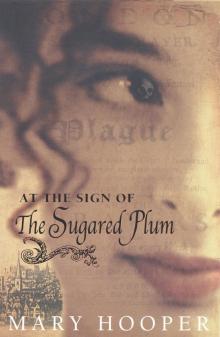 At the Sign of the Sugared Plum
At the Sign of the Sugared Plum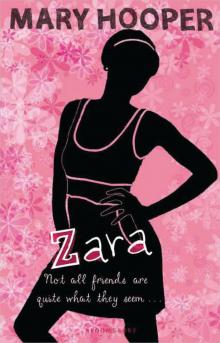 Zara
Zara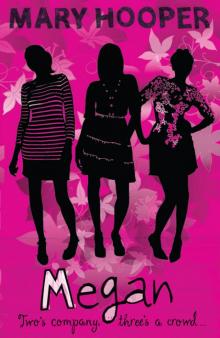 Megan 3
Megan 3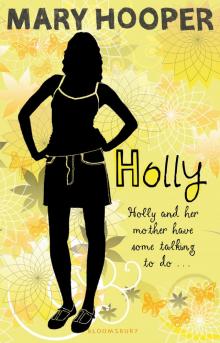 Holly
Holly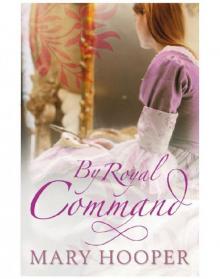 By Royal Command
By Royal Command Newes from the Dead
Newes from the Dead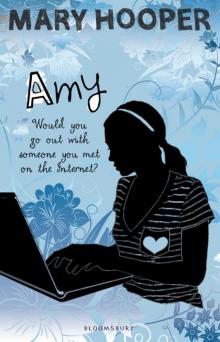 Amy
Amy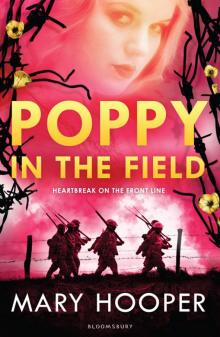 Poppy in the Field
Poppy in the Field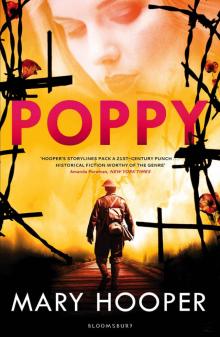 Poppy
Poppy Velvet
Velvet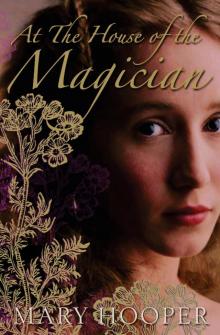 At the House of the Magician
At the House of the Magician The Remarkable Life and Times of Eliza Rose
The Remarkable Life and Times of Eliza Rose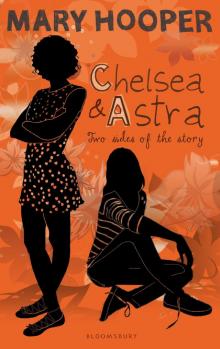 Chelsea and Astra
Chelsea and Astra The Betrayal
The Betrayal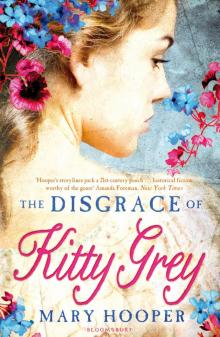 The Disgrace of Kitty Grey
The Disgrace of Kitty Grey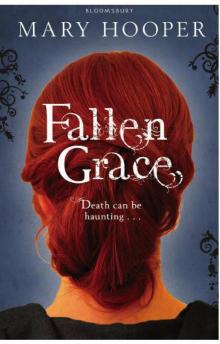 Fallen Grace
Fallen Grace